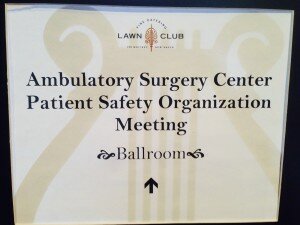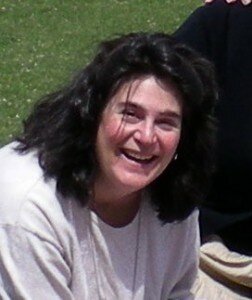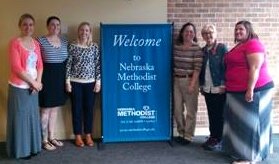HONOReform’s Dedication to Ensuring Safety in Ambulatory Surgical Centers

We were thrilled to engage with several ASC organizations recently. See our 2 minute video blog about our experiences with ASC organizations.

We were thrilled to engage with several ASC organizations recently. See our 2 minute video blog about our experiences with ASC organizations.

My heart skipped a few beats last week when I read about the potential outbreak resulting from a lack of safe infection control measures in a doctor’s office in Santa Barbara County. Things had been going fairly smoothly in regard to safe injection practices. In 2014, none of the investigations which took place found any disease transmissions. In fact, we had not had an investigation over the last six months and although we never stop educating and spreading awareness, we were able to breathe a small sigh of relief. Read more

The American Association of Colleges of Nursing emphasizes that an essential component of baccalaureate nursing education is to prepare the graduate to advocate for individuals, families, groups, communities, populations, the profession of nursing, and changes in the health care system (AACN, 2008). The challenge for nurse educators is how to define advocacy, not just as a word but a greater concept, and how to engage students in advocacy.
Patient lived experiences are a great way for students to understand how their actions in their own practice affect their patient at the time of care and in the future. The focus of nursing education is to prepare students to understand their patient’s problem and provide action steps to correct the problem. The use of personal stories helps the students to visualize and truly understand how their interventions and rationale can affect their patients in years to come.
Reading the book, A Never Event, has made a huge impact on our nursing students. Reading about an incident that happened so close to home allows the students to take accountability and ownership for these profound issues in our health system. The shocking events that occurred call the students to become advocates for quality and safety improvement for our patients. They identify with the stories and the characters and become empowered for change.
Evelyn McKnight’s presence in the classroom helps students to see a person who has a passion for the cause of patient safety. Evelyn is able to clearly articulate her mission for safe care for every person and she empowers students to see themselves as advocates for her cause as well. She puts the concept of patient safety right onto the shoulders of the students as future competent health care providers. I think students comprehend their responsibility for safe patient care in a whole new light after listening to Evelyn McKnight. After hearing her story and learning about all the ways she is impacting health care policy, students see that every person can make a difference in the world.
Evelyn’s contribution to a new book, The Truth About Big Medicine, compliments her personal story in A Never Event and expands on the issues of health policy in America. Evelyn gives a face and story to health policy, helping individuals better understand the importance of health policy awareness, advocacy, and activism. We look forward to including The Truth About Big Medicine in our nursing curriculum at Nebraska Methodist College.
Cathy Barnes, MSN, RN, Katie Doty, MSN, RN, Casey Frost, MSN, RN, Jodi Jenson-Bassett, MSN, RN, Carissa Nielsen, MSN, RN, and Echo Perlman MSN, RN are nursing faculty at the Nebraska Methodist College and the authors of this blog.
Reference
American Association of Colleges of Nursing. (2008). The essentials of baccalaureate education for professional nursing practice. Retrieved from http://www.aacn.nche.edu/education-resources/BaccEssentials08.pdf